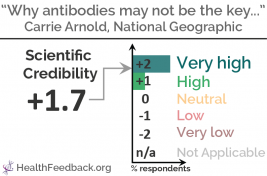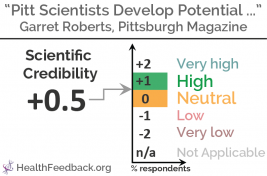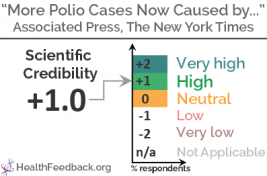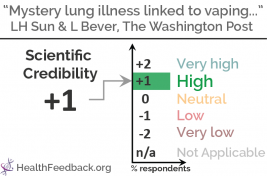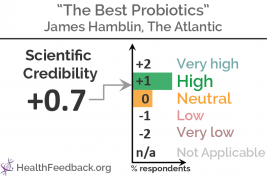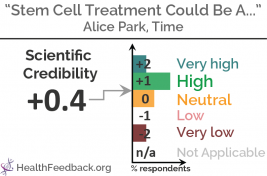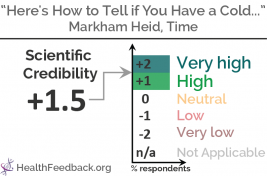.
Articles tagged as: Accurate definition
Potential role for T cells in COVID-19 immunity accurately reported in National Geographic article
in National Geographic, by Carrie Arnold
“The article accurately discusses the recent findings about the presence/relevance of T cell response against COVID-19. Indeed, both arms of adaptive immunity, humoral and cellular, contribute in different ways to the body’s fight against viral infections. What remains to be seen and explored in greater detail is how important the role of antigen-specific T cells is in protecting people from a re-infection or ameliorating the disease symptoms.”
— 19 Aug 2020
COVID-19 vaccine candidate by Pittsburgh scientists show promising results in animal studies, but clinical trials still needed before efficacy in humans is known
in Pittsburgh Magazine, by Garret Roberts
Scientists who reviewed this article’s scientific credibility found that the reporting was generally accurate. However, they also highlighted a missed opportunity to provide readers with more information to place the research findings in context. Ian Frazer, immunologist and professor at the University of Queensland, pointed out that the article “assumes that an immune response in mice would equate to protection of humans against viral infection, but there are many examples where that is not the case”.
— 11 Apr 2020
New York Times accurately reports vaccine-derived polio outbreaks caused by low vaccine coverage
in New York Times, by Associated Press
“The content of the article is correct: attenuated polio strain type 2 contained in the oral vaccine can – in very rare cases – mutate and cause disease in under-immunized persons. However it might be good to specify that if the vaccine coverage is good, this will not happen (so the vaccine coverage has to be maintained, since it has prevented 13 million cases since 2000, according to the WHO).”
— 02 Dec 2019
Washington Post article provides accurate and insightful report on recent spate of vaping-related illnesses
in Washington Post, by Lena H. Sun and Lindsey Bever
“At the moment, it is not possible to know if these pulmonary diseases are related to propylene glycol, glycerol, nicotine, flavorings, or more likely, synthetic/natural drugs sometimes added to e-liquids. Although vaping has deleterious effects on the lungs, e-cigarette vaping has been shown to be safe for over 10 years now… I firmly believe that this new epidemic is linked to synthetic cannabinoids, which unfortunately could be popular among young people”
— 13 Sep 2019
The Atlantic provides accurate summary of research on gut microbiome, hypothesizes well-reasoned potential benefits of consuming fresh produce
in The Atlantic, by James Hamblin
“The article provides a well balanced discussion of current knowledge surrounding the gut microbiota and benefits of eating whole foods. The author could have provided more details on the limitations (possible confounding variables) of the initial referenced article, however this is a minor point. Furthermore, associations between the microbiota and weight gain/loss is currently unclear, which the author should have mentioned, particularly since reverse causation between obesity and a less diverse microbiota is highly possible”
— 02 Sep 2019
Time article on bone marrow transplant trial for multiple sclerosis treatment mostly accurate but needs more important details and context
in Time, by Alice Park
“The article contains some inaccuracies and simplifications, but is overall accurate. It is not clear which article and whose scientific data it refers to. Such information should be mentioned in the article. The type of stem cells that were used for the procedure is also unclear. Immune system renewal after hematopoietic stem cell transplantation has actually been demonstrated a long time ago…”
— 07 Jan 2019
Time article accurately describes distinguishing features between influenza infection and infection by other respiratory viruses
in Time, by Markham Heid
“Generally accurate. However, the main issue is that influenza viruses can also cause a “cold”, i.e. upper respiratory tract infection. A “cold” is a symptom/diagnosis whereas “influenza” is a virus that can cause symptoms such as a cold. There could be a better distinction by saying there are lots of viruses (flu, respiratory syncytial virus (RSV), human metapneumovirus (HMPV), rhinovirus, coronavirus, etc.) that cause respiratory infections including ‘colds’ and ‘chest infections’.”
— 28 Nov 2018

